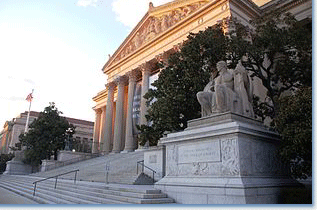The National Archives recently announced the winners of the 2013 Regional Fellowship Program. Six fellows were chosen to conduct research at National Archives facilities in Boston, Denver, Fort Worth, Riverside, San Francisco and St. Louis.
The 2013 Fellows include:
 |
Claire Dunning, National Archives at Boston
Neither Public nor Private yet Both: How the Nonprofit Sector Reshaped American Cities
Ms. Dunning will examine the relationship between federal funding and non-profit organizations in Boston at the end of the 20th century.
James Jenks, National Archives at Denver
The Northern Cheyenne Homesteaders of Southeast Montana’s Tongue River and Otter Creek Valleys
Mr. Jenks will investigate the location and property ownership status of 46 Northern Cheyenne families who, during the late 19th century, homesteaded on traditional land located on the east side of the Tongue River and in the Otter Creek Valley in southeastern Montana.
Susan Burch, National Archives at Fort Worth
Dislocated Removals, Institutions, and Community Lives in America History
Ms. Burch will explore the history Hiawatha Asylum, the only federal psychiatric institution specifically for American Indians.
Melanie Sturgeon, National Archives at Riverside
Prostitution in the Arizona Territory
Using territorial assessment and tax rolls, arrest and court records, deeds, city licenses, censuses, and letters, Ms. Sturgeon will examine the lives of professional prostitutes, their business strategies, and the economic, physical and social challenges they faced.
Nicolas Rosenthal, National Archives at San Francisco
Moving Towards the Mainstream: Native America, 1890-1040
Using Bureau of Indian Affairs records, Mr. Rosenthal will study Native American history from the end of the Indian Wars to the beginning of World War II.
Zonnie Gorman, National Personnel Records Center in St. Louis
Navajo Code Talkers of World War II
Ms. Gorman will use military and personnel records of individual code talkers to trace the origins of the Navajo Code Talker Program and will focus on the “first 29,” the program’s pilot group that created the original code of approximately two hundred Navajo terms.
To read the complete announcement, or learn about the Regional Fellowship program, see the official press release.
This post first appeared on AHA Today.
Tags: AHA Today Member News
Comment
Please read our commenting and letters policy before submitting.






